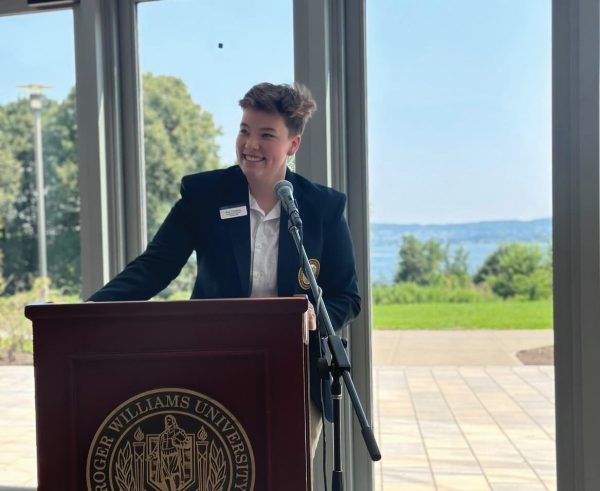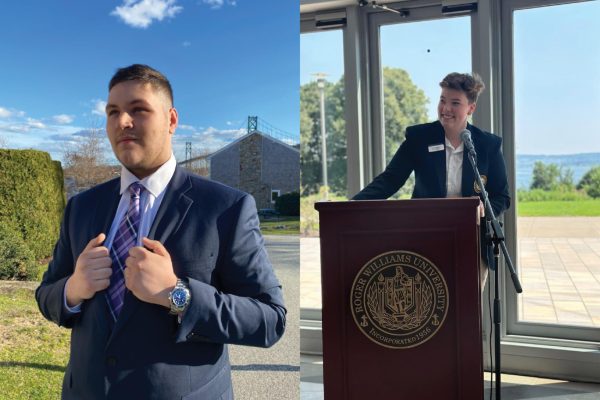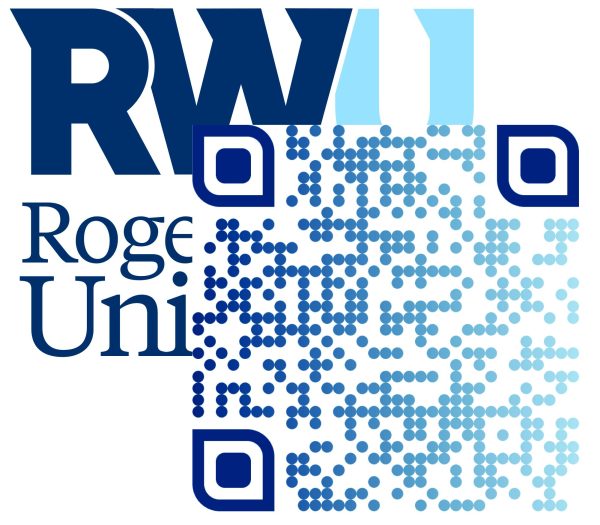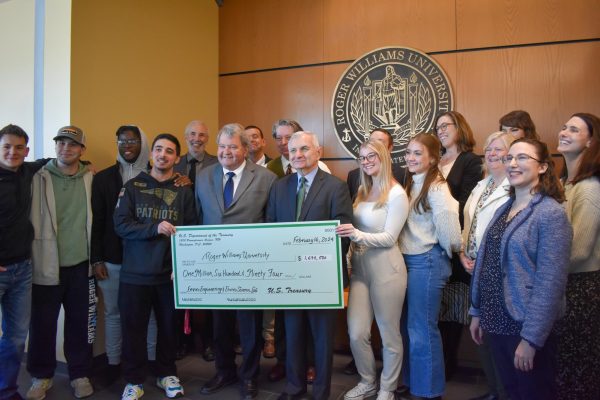RWU Dining tackles food waste issues at Upper Commons
Students dining in the Upper Commons may have noticed the signage regarding food waste and wondered why they have been set up. Upper Commons Dining Manager Joshua Hennessy said he has been trying to promote better dining habits and educate the Roger Williams University community about the negative impacts of food waste. “What we’re doing is trying to source [food] locally as much as possible, treat the food with love and care and great food for [RWU students], but also being shepherds of the food and not just discarding it because of discarding,” said Hennessy. One of the ways in which Hennessy is trying to reduce food waste in the Upper Commons is by working with dining staff daily to make sure they are not over portioning because it “inherently creates waste.” “If we’re giving out four or five little red bliss potatoes, but students are only eating three, two or three go in the trash,” said Hennessy. At dinner at the Upper Commons during Super Bowl LVII, Hennessy said what seemed to work in tandem with not over portioning was telling students they could come back and grab more if they were still hungry. There is an environmental impact of food waste in that food waste can fill up landfills and its organic matter can produce methane and cause a greenhouse gas effect. On the back end to be more environmentally conscious, if food is wasted by a student, Hennessy said, “we have a fully robust back of the house program, where anything we’re not able to repurpose gets composted goes to a Rhode Island compost plant.” Hennessy said he wants students to understand there is an economic ripple effect from food waste, not just at the university, but anywhere they waste food. “If we continue down the path of consuming food in a wasteful way, the cost is going to continue to go up not just here [RWU], but in the grocery store, which in turn drives the cost of fuel up, which later drives the cost of all goods up,” said Hennessy. “You don’t see bacon on the menu too much [at Upper Commons],” said Hennessy. “Bacon is 036;140 to 036;160 a case and we’re going through ten cases for breakfast. That’s an astronomical amount of money and if students are taking too much or being overserved, it’s unfortunately going into the waste stream and we’re just throwing away your money.” To educate students more about food waste Hennessy said he plans on continuing to have the signage in Upper Commons about it, post on social media and along with RWU Dining Manager General Manager James Gubata, talking to students in the Upper Commons about it. Additionally, if students have questions for Hennessy, Hennessy said, “I’m here [at Upper Commons] Sunday through Thursday, I’m on my email. Anyone can come and talk to me. My door is open and I would love the opportunity.” “It’s up to the individual to make the right decision,” Hennessy said. “Take what you want, eat what you take, but be thoughtful about it,” said Hennessy. “Make sure you set yourself up with enough time in the day to enjoy and enjoy what the moment is of sitting across from somebody breaking bread together and having a conversation.”

Jimmy Sadowski is a journalist with experience in print, multimedia, and broadcast journalism. Sadowski’s specialty is news, but can also provide...









